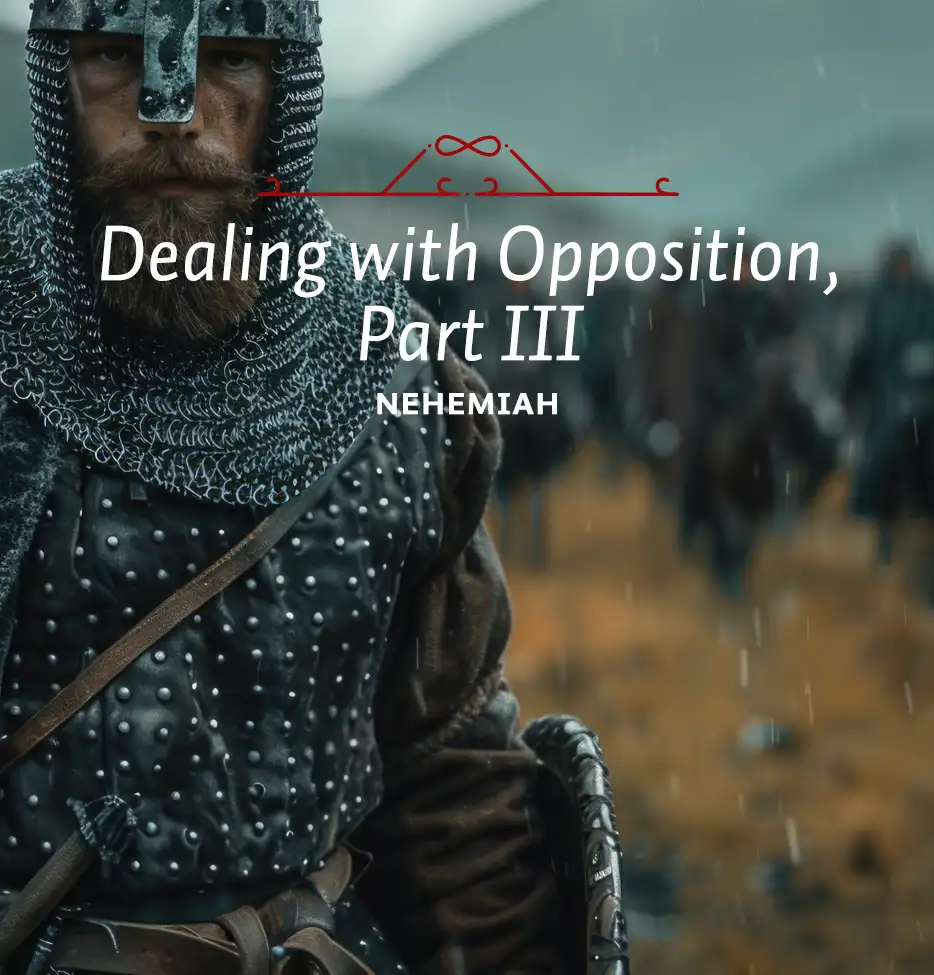Who is not afraid or disturbed or hurt at times? We all are. Yet it is precisely when we yield those fears to God and press on that we show leadership.
In his study of these verses Charles Swindoll speaks of this as “rumor” and notes the following:1
1. It is the case with rumors that the source is never declared. The letter to Nehemiah merely speaks of the Jews alleged rebellion being “reported among the nations.” From whom the story comes is not said.
2. A rumor is noted for its exaggeration and inaccuracy. The only thing true in the letter was the fact that the Jews were rebuilding the wall. Everything else was untrue.
3. A rumor is designed to hurt. By linking the “report” with a new invitation to confer, Sanballat seemed to have placed Nehemiah between a rock and a hard place. If he refused to go, he would seem to be admitting the rumor’s truth. If he stopped work and went down, Sanballat would have achieved his purpose and would perhaps have had an opportunity to seize or assassinate him.
Moreover, the letter was a threat to hurt even more. For when Sanballat said, “This report will get back to the king; so come, let us confer together” (v. 7), he was not offering to help, as his words seemed to indicate, but he was actually threatening to report Nehemiah to Artaxerxes if Nehemiah refused to cooperate. In fact, the report was already abroad. Now Sanballat was threatening to endorse it officially.
What is a leader to do in such circumstances? Well, if ever a leader needs inner strength, it is in such cases. His own heart must be pure, first of all. If Nehemiah had actually been planning to become king and lead a revolt, he would have been weak-kneed with indecision. A leader needs inner strength to act decisively.
As soon as Nehemiah heard the report, he replied immediately: “Nothing like what you are saying is happening; you are just making it up out of your own head” (v. 8).
He did something else too. He prayed (v. 9). Although he denied Sanballat’s false rumor as directly and emphatically as possible, he did not know whether his denial would be believed or whether he would survive the assault. So he turned to his only true source of strength, as he was accustomed to do.
“Now strengthen my hands,” Nehemiah prayed. That is all we can do also. We must commit our cause to God and press forward.
Nehemiah’s inner strength obviously came from God, from his relationship to Him. And if it came from God in Nehemiah’s case, it can come from God for us in our lives as well.
Cyril Barber cites Maurice E. Wagner as having put it like this:
Personal security…comes from our relationship to the three Persons of the Godhead. Our relationship to God the Father gives us a sense of belonging. We are members of his family and are secure in our Father-child relationship. Our union with Christ the Son gives us a sense of worth. God loved us so much that he sent his son to die for our sins. With our redemption accomplished, God has made us joint heirs with Christ. This shows our value. Finally, the Holy Spirit’s indwelling empowers us. We are made equal to every task (i.e., we are competent).2
A person whose life is anchored on these three foundational relationships will be able to stand against all hostile attacks.
1Charles R. Swindoll, Hand Me Another Brick (Nashville, TN: Thomas Nelson, 1978), 130-131.
2Quoted by Cyril J. Barber, Nehemiah and the Dynamics of Effective Leadership (Neptune, NJ: Loizeaux Brothers, 1976), 101. Wagner’s book is entitled Put It All Together: Developing Inner Security (Grand Rapids, MI: Zondervan, 1974).






